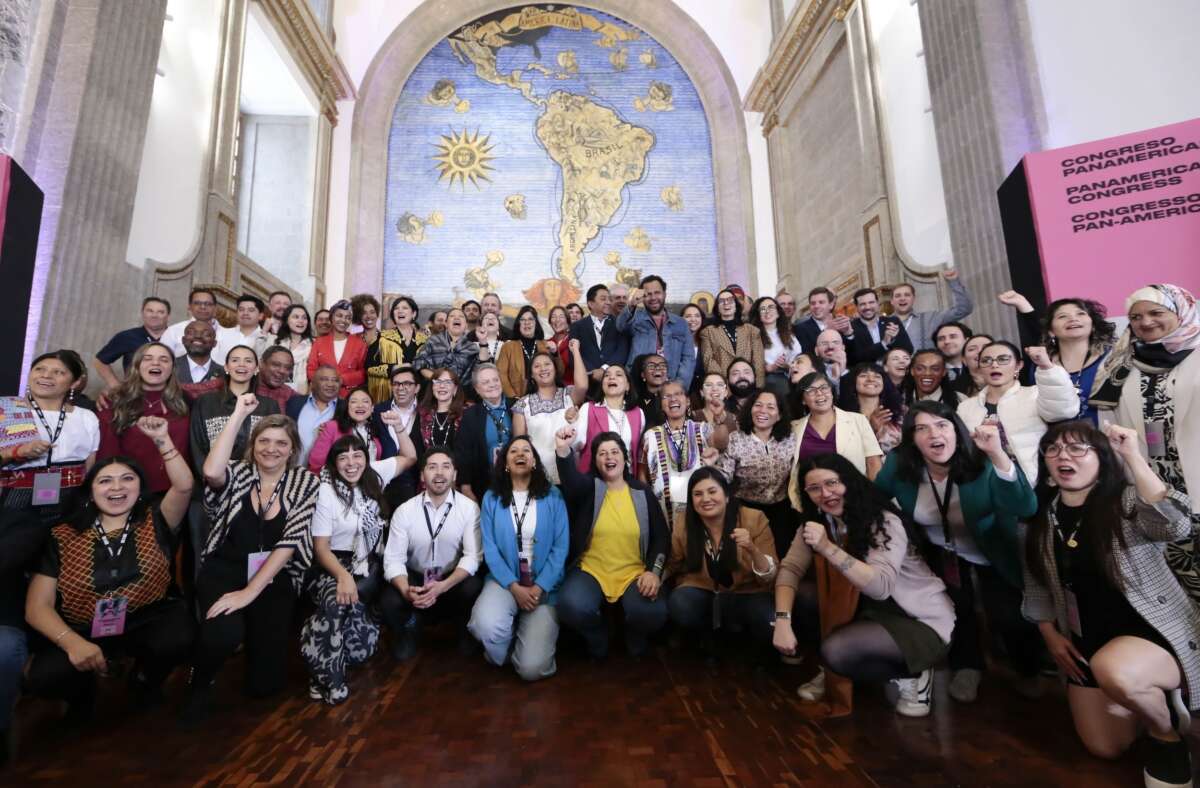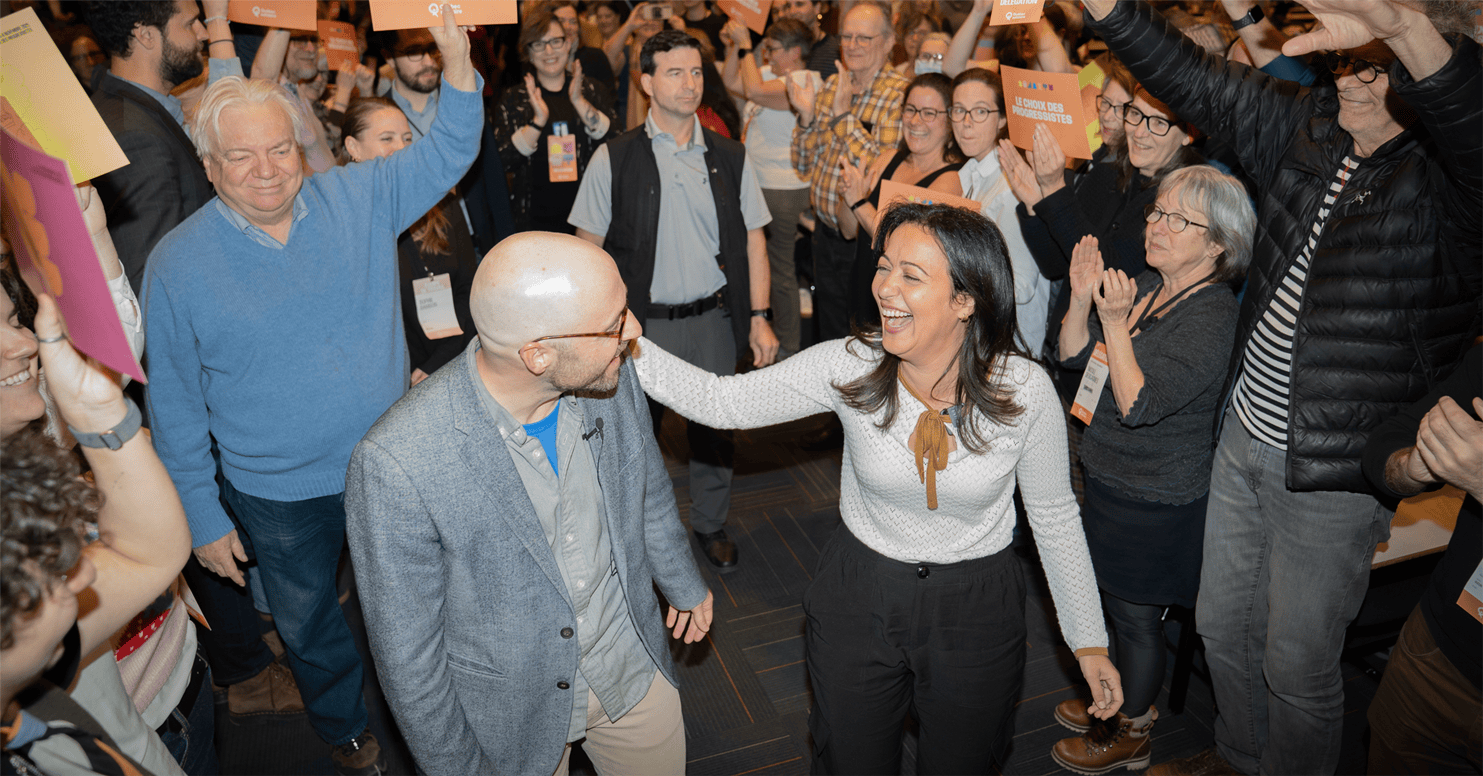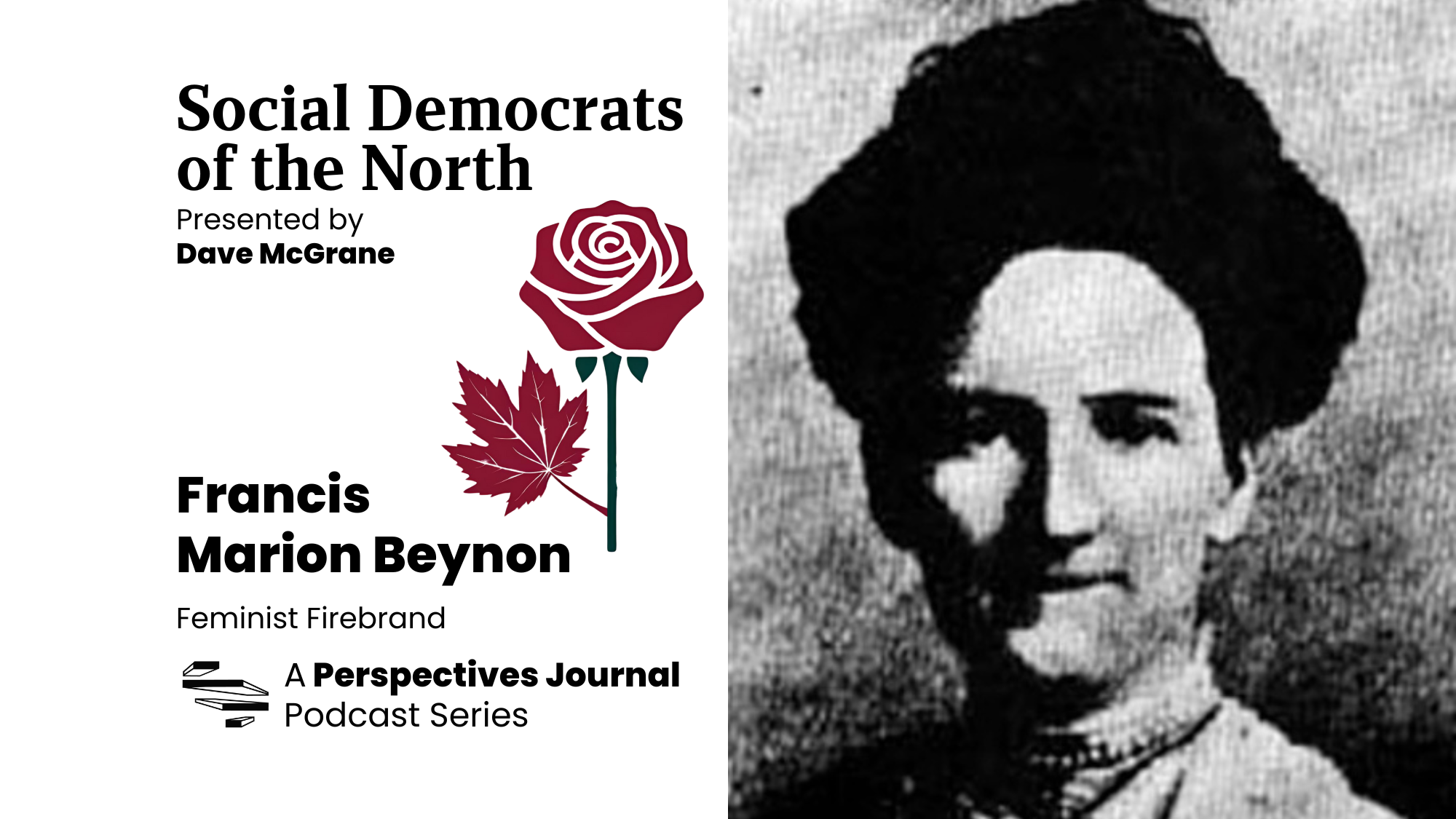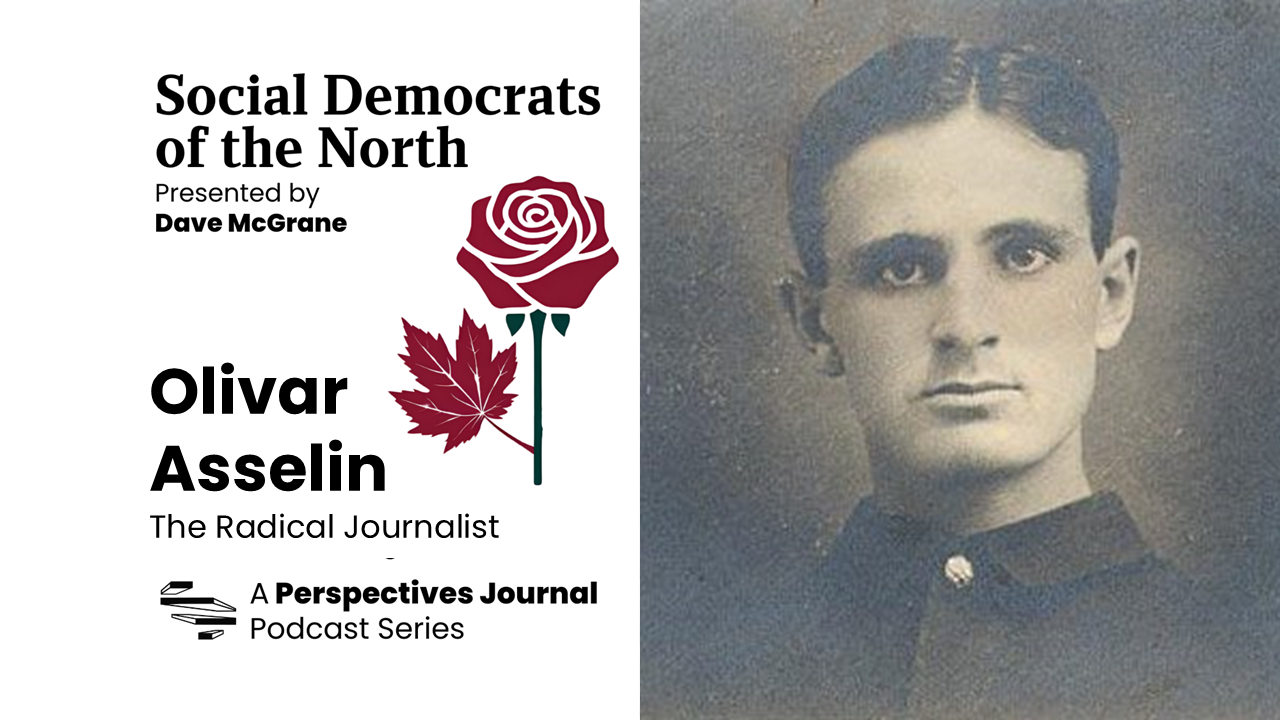With Mark Carney’s rightward economic turn on spending (save for the military), tax cuts, and natural resource development, Canadian progressives are left struggling for a vision of the alternative. However, there are whole progressive movements south of our border that can help to develop that vision. Canadian progressives need to start paying attention.
At the 2025 Panamerican Congress held August 1-2 in Mexico City, progressive legislators from Nunavut to Tierra Del Fuego discussed what they have been doing to advance the well-being of their citizens and build solidarity across borders. The government of Mexican President Claudia Sheinbaum, host of the Congress with her Morena parliamentary group, touted the ambitious and transformative social programs they have pursued to massive public approval. Legislators from Colombia, co-leading the Hague Group, called to defend international law in solidarity with the people of Palestine. Others observed the fight against far-right extremism; even progressive House Representatives from the United States, such as Ilhan Omar, Summer Lee, Delia Ramirez, and Rashida Tlaib could at least show their bruises in their struggles against fascism.
Progressive governments in the Global South should show Canadians how to build a vision for a good society, where transformation for the wellbeing of all Canadians is the goal.
What were the transformative programs Canada could bring to the table at this Congress? How has Canada acted to defend international law? What campaign victories could Canadians even point to lately? What could the Canadian delegation talk about under this Liberal government?
Canada’s recent progressive record stands in stark contrast to other countries of the Americas. While Canadians ask “Why doesn’t Canada already have a stronger relationship with Mexico?” what they may not realize is how several years of progressive governance in Mexico has left Canada behind. Mexico’s Minister of Women Citlalli Hernandez Mora pointed to 2025 being the “Year of the Indigenous Woman” with the Sheinbaum government coordinating states and municipalities to implement water and sanitation programs in Indigenous communities. Meanwhile in Canada, Minister of Women and Gender Equality Rechie Valdez looks to make cuts of over 80 per cent to her department and First Nations raise alarms over the Carney government’s lack of consultation on infrastructure projects.

On campaigns, Canadian progressives have much to learn too from our neighbourhood to the South. Zohran Mamdani’s historic campaign for the Democratic Party primary in New York City was brought up throughout the Congress as a progressive communications campaign that ought to be studied. The strategy of President Sheinbaum’s daily Mañanera del Pueblo livestreams on YouTube reaches more than 1.3 million subscribers daily was also discussed as a powerful tool to reach the country’s working-class. On fighting misinformation in the media, President Lula da Silva’s government in Brazil is taking on US big tech—in Canada, we put our elbows down on the Digital Services Tax without a fight.
On expressing solidarity across borders, Canadians were once great at showing their support for human rights and democracy. In an article to The Globe and Mail in June 1986, Ed Broadbent condemned the US government for its intervention in Nicaragua and expressed support for the Sandinista government. Canada was once the host country of the 1978 Congress of the Socialist International in Vancouver. Broadbent worked with legendary Chancellor of Germany Willy Brandt to bring progressive leaders from around the world to Canada. It’s tough to imagine building solidarity across borders, like bringing the Panamerican Congress to Canada, when the Carney government beefs up border security that restricts asylum and sells out data to US security agencies.
Among the Global South, the Government of Colombia co-chairs the Hague Group, taking leadership to organize countries to defend international law and build solidarity with the people of Palestine. This includes upholding the rulings of the International Court of Justice and the International Criminal Court on the occupation of Palestinian territories and the arrest warrants for members of the Israeli government respectively. Meanwhile, Canada abstained from recognizing the ICJ opinion and hesitated on the ICC’s arrest warrants before changing its mind when the rest of the world signed on.
Fellow Canadian Naomi Klein was featured as a keynote speaker at this year’s Congress and in her remarks, she could not highlight much progress in defending democracy, fighting fascism, or building economic wellbeing for all Canadians. But what she could celebrate were the progressive wins, overcoming far-right forces, across Latin America. She could recognize the real fight being waged against the Trump administration by US progressives. Their struggles are ongoing and incomplete, but their transformative visions and substantial wins can leave Canadians thinking: why not us too?
Progressive governments in the Global South should show Canadians how to build a vision for a good society, where transformation for the wellbeing of all Canadians is the goal. If Canada wants to build better relationships with these countries, like Mexico, Canadians need to understand how they have built their social and economic infrastructure for the fulfillment of human rights. These countries are especially wary of Canada when its economic interests heap human rights abuses and environmental damage on Indigenous lands, and exploit migrant workers from these Global South nations.

At this moment of multiple crises, it may be easy for Canadians to fall into despair, into a hyper-individualism when systemic failures keep mounting. These wins in Mexico, Brazil, Chile, Colombia, and even in pockets of the United States should serve as inspiration for Canadians in what is to be done next.





